Career fairs are usually organized in large halls with booths and tables set up by each potential employer and recruiter. The recruiter will market their company and tell potential employees about current job opportunities and the job application process. Job seekers can talk to recruiters, gain insightful tips, learn about job openings and career opportunities, and even take part in on-the-spot interviews.
In addition to the networking opportunities, career fairs often also hold talks, seminars, and workshops where the organizer, or companies taking part in the fair, present on a range of topics. These topics include subjects like preparing for a job interview, writing a CV or resume, and how to apply for a specific job.
Benefits of career fairs:
- Job seekers can attend talks, seminars, and workshops on various subjects, such as how to write a CV or interviewing tips.
- Job seekers can research different companies and industries.
- Employers and job seekers can make use of networking opportunities.
- Employers can increase brand awareness for their company.
- Employers can conduct initial screenings of job seekers.
- Employers can perform job interviews if they find a great candidate.
- Job seekers can build professional relationships and get recruitment tips from experienced recruiters as well as younger employees.
Top Career Fair Organizers:
01. Best Hire Career Fairs
Holding both virtual and in person career fairs for some of the top cities in the country, Best Hire Career Fairs is a job fair organizer that also posts about finding jobs.
02. JobFairGiant.com
A monthly career fair that operates in Michigan, JobFairGiant.com puts employers in contact with experienced candidates, college graduates, skilled tradespeople, military veterans, and entry-level candidates.
03. Catalyst Career Group
Specializing in virtual career fairs and private recruiting events, Catalyst Career Group organizes fairs for the East, West, and Central U.S.
04. Choice Career Fairs
Choice Career Fairs organizes fairs in various cities throughout the U.S. for job seekers to attend free of charge.
05. Expo Experts
Expo Experts organizes career fairs for the engineering and technology and the nursing and healthcare industries across the U.S.
06. Jobertising.com
A recruitment-advertising company, Jobertising.com organizes career fairs throughout the U.S. They also offer employment tips to job seekers and will work directly with employers to help them find top talent.
07. JobFairsIn.com
JobFairsIn.com is an advertising site where both job seekers and employers can see any career fairs happening near them. Organizers can promote their fairs for free on this site to gain more exposure.
08. JobFairX
JobFairX organizes both virtual and in-person hiring events that attract candidates of all backgrounds and experience levels. They also offer resume and interview tips to job seekers and assist employers with private events and targeted emails.
09. United Career Fairs
United Careers Fairs organizes both virtual and in-person fairs for sales careers across the U.S. Employers can also engage United Career Fairs to provide personalized staffing services.
What to Wear to a Career Fair:
- Dress pants or a skirt — no denim, shorts, baggy pants, short skirts, or pants with rips or holes.
- Polo or golf shirt, blouse, or a casual shirt with a collar — no t-shirts, low-cut tops, wrinkled or old tops.
- Clean, well-cut jacket.
- Professional shoes — no flip-flops or beachwear.
- Suits are appropriate.
- Neutral colors like blue, beige, white, tan, gray, or black are more professional than bright colors. You can use bright colors for accents and accessories, like ties or jewelry.
- Keep jewelry light and classic — avoid large, chunky jewelry or overdressing with jewelry.
- Clean and style your hair and keep it off your face. Facial hair for men should be well-groomed.
- Make-up should be kept minimal with a neutral palate.
- Use a light fragrance and avoid heavy amounts.
- Bring a clean, professional bag or briefcase to carry hand-outs.
Whether you are an employer or job seeker, when dressing for a career fair you should present a professional and confident appearance. While it's not necessary to wear a full suit, it is always better to be overdressed than underdressed when attending a career fair.
Be sure to try on your outfit before going to the career fair to check that it fits well.
How to Prepare For a Career Fair:
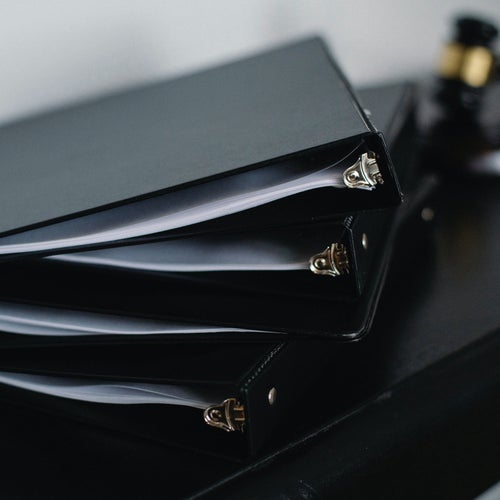
Whether you are a job seeker or a recruiter, you can follow our steps to prepare for going to a career fair.
Prepare to attend a career fair as a job seeker.
Research the career fair you will be attending.

Find all the information you can, including seminars, attending companies, the day's itinerary, the location, etc.
Pre-register for the fair.

If you can, you should pre-register for the career fair and submit your resume and other information for potential recruiters to peruse.
Obtain a list of the companies at the fair.

Go through the career fair's website and try to find a list of all the companies attending the fair. Research each company that will be attending and make a list of the ones you want to speak to. Then, research their background, environment, and objectives.
Prepare a stack of resumes to give to recruiters.
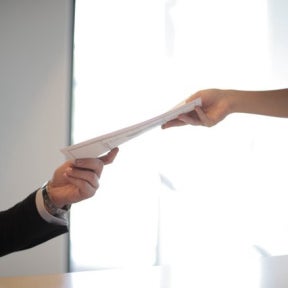
Before attending the fair, you should update your resume to highlight your education, skills, and experience relevant to your list of top companies to approach. If you are interested in different career options, prepare various targeted resumes.
Compile a list of questions to ask potential recruiters.

Once you have a list of all the company booths you want to visit at the fair, you should come up with a list of questions that you want to ask the recruiters. This will help you to get all the information you need and will also make a good impression on the recruiters.
Start online applications for the companies you're interested in.

If you are interested in a specific company, start an online application for them so that you have an idea of their application process to ask and answer questions.
Prepare an elevator pitch.

Career fairs are generally very crowded and busy, so it's a good idea to prepare a short introduction of your skills, knowledge, and abilities beforehand. Make your elevator pitch short and punchy to ensure you quickly impress the recruiters.
Prepare for potential interview questions.

Recruiters will sometimes conduct mini-interviews at career fairs, especially if they are impressed by a candidate or if the fair is quiet. You should prepare potential for interview questions so that you can give smooth answers.
Prepare to attend a career fair as a recruiter.
Advertise your presence.
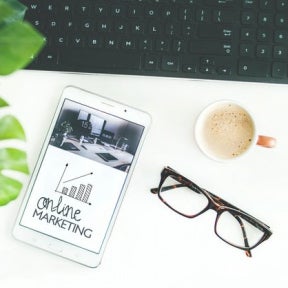
Before the event, you should advertise your presence at the career fair so as to draw the attention of a wide pool of candidates.
Plan a colorful booth design.

You will need to plan a colorful booth design and practice setting it up. Ensure that you prepare everything beforehand and that it is properly packed. Don't forget your business cards and name tags.
Print out promotional materials.
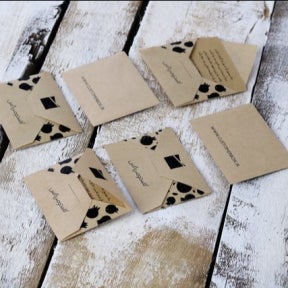
Promotional materials include business cards, brochures, pamphlets, or handouts. You should also have plenty of company literature on hand for your representatives.
Consider if you will be accepting resumes or not.
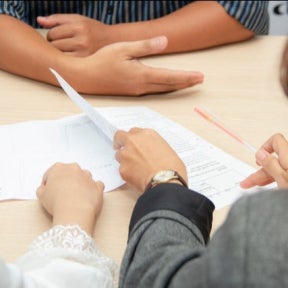
If you do not accept resumes, you will need to offer potential employees an alternative option, such as directing candidates to online applications.
Ensure your representatives are prepared.

Make a list of your open positions and train all your representatives so that they are familiar with the positions. Consider preparing a list of talking points about the various positions for your representatives.
Plan your trip.

Planning your trip ensures that you will arrive early and will have plenty of time to set up your booth.
Consider if you will offer promotional objects or giveaways.
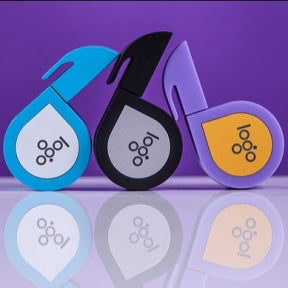
Promotional objects or giveaways can be used to entice candidates to your booth. If you do want to offer them, you will need to order and pack them well in advance.
An object that is out of the ordinary and represents your company is a better choice than the ordinary, such as pens, keychains, or lanyards.
Prepare a brief list of interview questions.

You may receive an emailed resume before the fair or hear an impressive elevator pitch during the fair. If you are interested in a candidate, a prepared list of interview questions is useful to pre-qualify them.
What to Bring to a Career Fair:
For job seekers:
- Multiple copies of your resume.
- Targeted resumes for different career options.
- Business cards, if you have them.
- A notebook, pen, and a folder for business cards, brochures, and other handouts.
- The list of your top companies with applicable research.
- Application preparation materials.
- Your elevator pitch.
- An emergency change of clothing, in case of spills or wardrobe malfunctions.
For recruiters:
- Nametags and business cards.
- Promotional material.
- Giveaways, if applicable.
- Application materials, such as forms or laptops connected to your website.
- Lists of talking points and company materials for your representatives.
What to Do At a Career Fair:
For job seekers:
- Arrive as early as possible to make the most out of the day and take some time to go over the map of the fair. This will help you to find the companies you are most interested in.
- When you arrive at the career fair, check-in at the reception desk and get a name tag, if applicable. The name tag goes on your right side so that recruiters will notice when shaking your hand.
- Use the list of top companies you made and visit each company in order of priority. Career fairs can be chaotic and very busy, so use this tip to ensure you visit the companies you most want to speak to first.
- If you have time after visiting your top companies, talk to as many other organizations as possible. You may find a great company match that you hadn't thought of.
- Be proactive when introducing yourself. Smile and offer a handshake.
- Unless you're told otherwise, address the recruiters as Mr. or Ms.
- Be prepared with your elevator pitch after introducing yourself and remember to speak clearly and confidently. Don't speak too fast as you'll then come across as nervous. Also, be prepared to answer questions about yourself and your interest in the company.
- When questioning the recruiters, take notes on important details, such as names, contact numbers, information sessions, future hiring dates, etc. Definitely ask about the application process for those companies that have available job opportunities for people with your skillset.
- Offer recruiters a copy of your resume and your business card when you start your elevator pitch and point to relevant sections on your resume as you talk.
- Always ask before taking materials from a recruiter's table, especially if the brochures or pamphlets are still packed in boxes.
- When wrapping up a conversation, thank the recruiter for their time and ask for a business card.
- Make time to talk to other job seekers to share information and network.
For recruiters:
- Arrive early so that you will have plenty of time to set up your booth.
- Keep to a specific timeframe when speaking to candidates so that there won't be long queues at your booth. However, try to answer all the questions a candidate may have.
- Make notes during candidate interviews to help you to remember all the people you'll be speaking to.
- Gather resumes and contact details and keep them together with your notes.
- Inform candidates about applying online or other steps that will be taken at the end of the career fair (e.g. "while we don't have an opening currently for someone with your skillset, we will contact you as soon as a position comes available").
- Ensure your recruitment team is engaging candidates as much as possible and that your booth is never unmanned.
Tips for Getting the Most out of a Career Fair:
For job seekers:
- Dress professionally and bring only what is necessary for the fair.
- Plan the order you want to approach recruiters in.
- Approach recruiters one-on-one.
- Chat to other job seekers.
- Be aware of your body language: Stand up straight, maintain eye contact, and don't cross your arms in front of your body.
- Bring enough copies of your resume to hand out at each booth you plan to visit plus a few extras.
- Greet recruiters with a handshake.
For recruiters:
- Research the organizers to find out if the event will attract the right kind of candidates for your company.
- Weigh up the price for participating with what is included in the package.
- Make use of all the available fair resources to promote your stand.
- Make sure you have enough representatives to continuously man your booth and keep wait lines short.
- Bring along enough promotional materials to last for the whole career fair.
- Plan to stay for the whole career fair to ensure maximum exposure to potential candidates.
- Make sure candidates can see all your vacancies.
What to Do After a Career Fair:
For job seekers:
After the fair ends, send a follow-up email to recruiters thanking them for their time. Reiterate your interest in their company, even if they don't have a job opportunity for you at the moment. By doing this, you can create an important professional connection and the recruiter will be more likely to remember you when a job opening for someone with your skills does become available.
If you are applying for an available job, follow the recruiter's instructions and submit your application within a few days of the fair. If the company does not have a job opportunity at the moment, you can ask the recruiter if you can go in for an informal interview.
Also, you should reach out to the other job seekers you spoke to at the fair to share your experiences. Offer to let them know if you see a job opportunity that could be a good fit for them and ask them to do the same for you. You should also join any professional organizations that were at the career fair and that are in line with your career goals.
For recruiters:
At the end of a career fair, contact qualified candidates as soon as possible to arrange further steps, such as interviews, completing an application, or completing a skills assessment test. You should also follow up with the team that attended the fair to discuss their overall impressions of the fair and the best potential candidates. You can then decide if attending that particular career fair was beneficial for your company and you will be able to improve your recruiting strategy.
Developing an Employee Recruitment Plan


